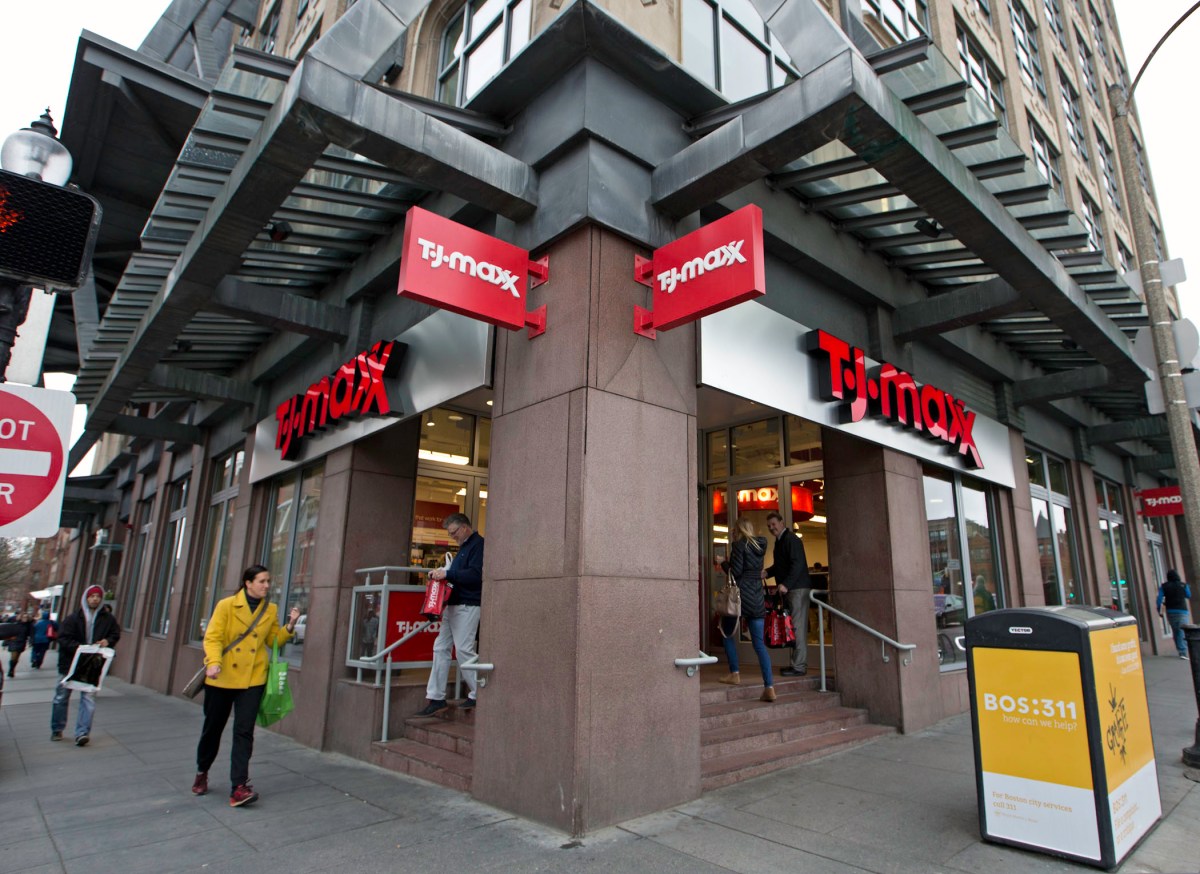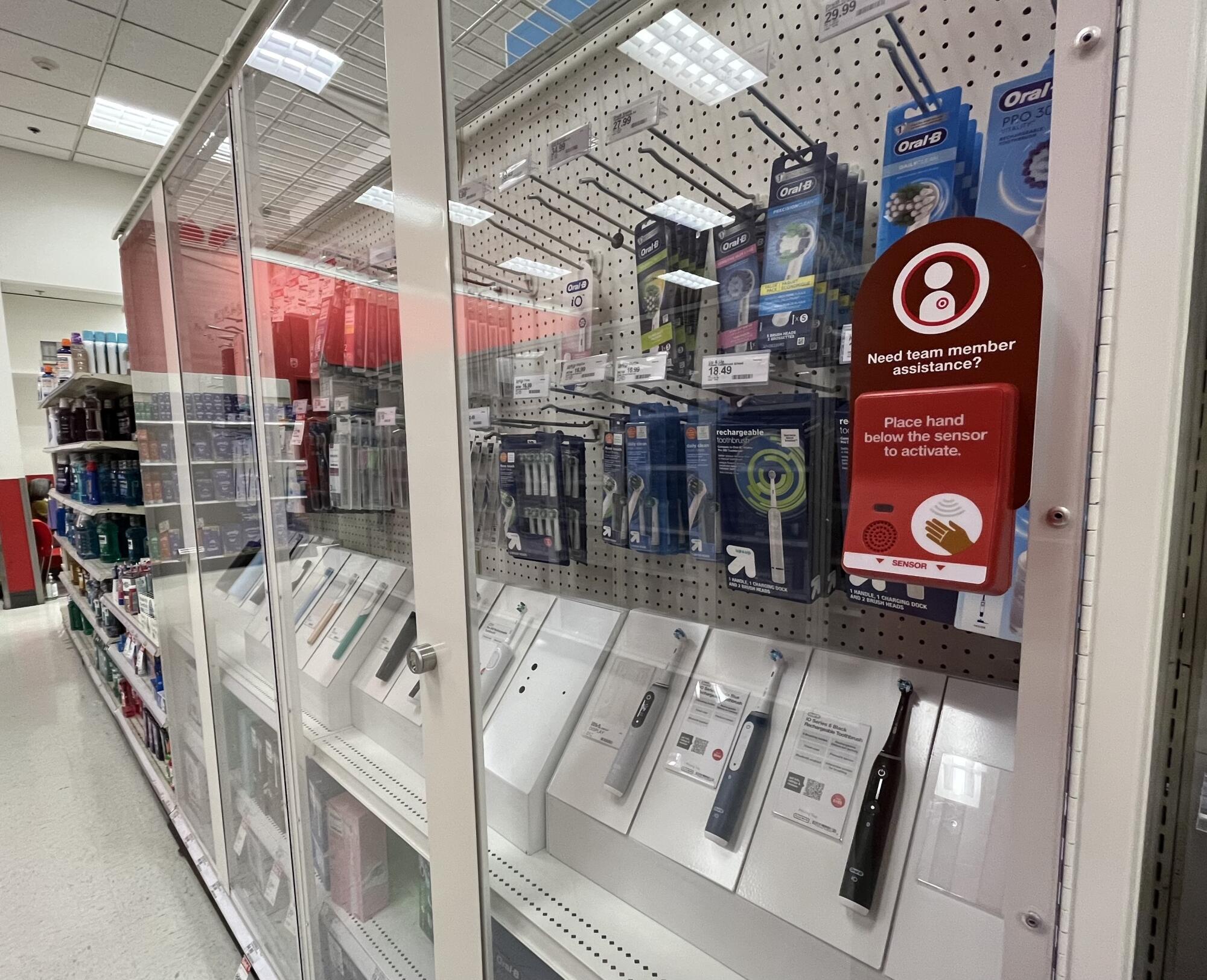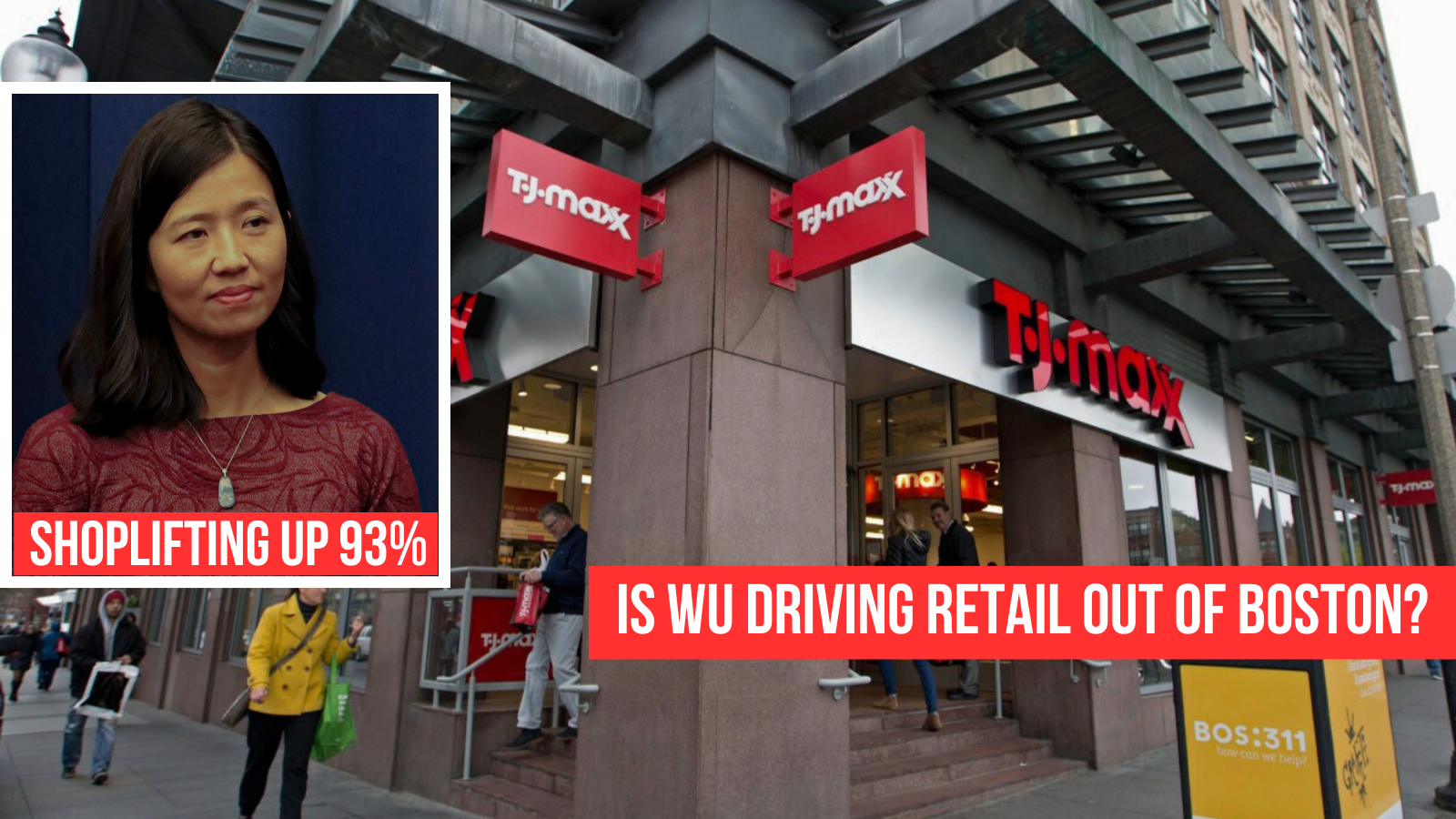BOSTON — First TJ Maxx, now Starbucks. Boston’s most familiar brands are shutting down stores just as shoplifting surges to record levels — and residents are asking whether Mayor Michelle Wu’s soft-on-crime policies are chasing retailers out of the city.
Chains flee Wu’s Boston

The TJ Maxx at 360 Newbury Street — a massive anchor on one of Boston’s busiest shopping corridors — is closing by January. For nearly a decade, bargain hunters packed its aisles. Soon, that corner of the Back Bay will sit empty.
At the same time, Starbucks is embarking on a wave of shutdowns across Massachusetts, with multiple Boston cafés on the chopping block — including the one beneath the iconic steaming kettle at Government Center.
Both companies insist it’s all about “real estate strategy” and “corporate restructuring.” But with theft soaring and shelves under lock and key, many wonder if that’s really the whole story.
Shoplifters run the aisles
MASSDAILYNEWS
STAY UPDATED
Get Mass Daily News delivered to your inbox

Police data tells the tale. Shoplifting in Boston has spiked 93% since 2019. Even compared to last year, it’s up another 15%. In the first half of 2025 alone, there were more than 4,100 incidents of larceny — nearly a quarter higher than the five-year average.
Stores across the city now resemble fortresses. Deodorant, detergent, even toothpaste sit trapped behind plexiglass. Shoppers complain it feels less like a high-end retail district and more like a prison commissary.
For retailers, constant theft means more losses, more staff stress, and higher operating costs. For some, walking away becomes the easiest option.
Wu’s policies under fire
Wu’s critics say they saw this coming. As a candidate and early in her mayoralty, she aligned herself with policies that de-emphasized prosecuting “low-level” offenses, including shoplifting. A so-called “do-not-prosecute” list circulated by progressive prosecutors was seen as a green light for petty thieves.

Today, Wu insists her administration is holding people accountable. City Hall points to its new “Safe Shopping Initiative,” which floods retail corridors with police and cameras. But with chains closing and theft still climbing, critics say the initiative looks more like damage control than a solution.
And the question lingers: are these closures really just corporate strategy, or the result of years of soft-on-crime policies catching up to Boston’s retail scene?
Who’s next?
If billion-dollar giants like TJ Maxx and Starbucks are packing up, what chance do smaller neighborhood stores have? Local bodegas and family-run shops already face soaring rents, high taxes, and razor-thin margins. Add unchecked theft to the mix, and survival becomes almost impossible.
Every empty window and “For Lease” sign on Newbury Street tells the same story: more theft, fewer stores, and a city that feels less livable by the day.
Wu’s office may shrug and say the closings are coincidence. But residents walking past boarded-up cafés and shuttered chains see a pattern — one that leaves Boston’s neighborhoods poorer, less safe, and increasingly abandoned.

Loading Comments